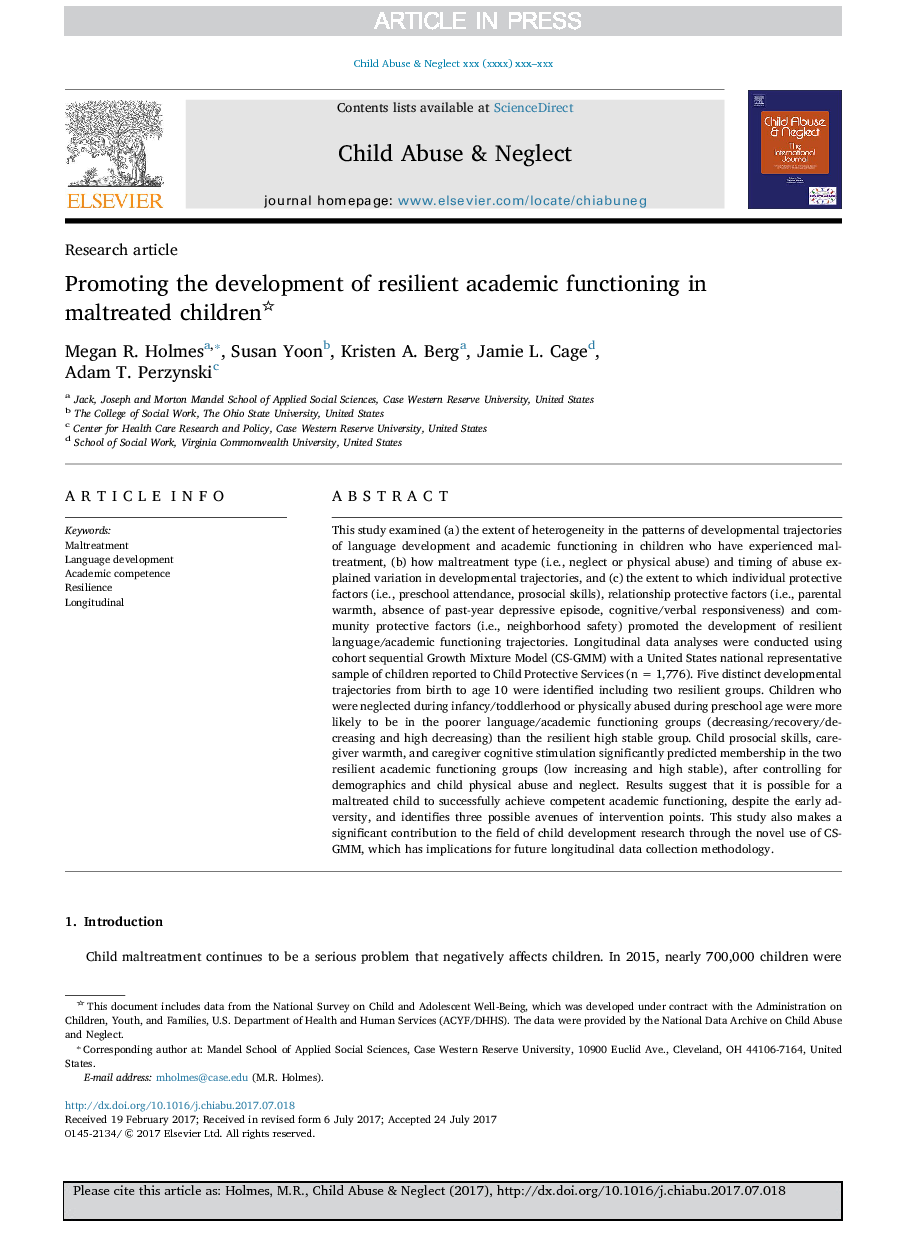ترجمه فارسی عنوان مقاله
مقاله پژوهشی توسعه فعالیت های آموزشی انعطاف پذیر در کودکان دست و پاگیر
عنوان انگلیسی
Research articlePromoting the development of resilient academic functioning in maltreated children
| کد مقاله | سال انتشار | تعداد صفحات مقاله انگلیسی |
|---|---|---|
| 160632 | 2018 | 12 صفحه PDF |
منبع

Publisher : Elsevier - Science Direct (الزویر - ساینس دایرکت)
Journal : Child Abuse & Neglect, Volume 75, January 2018, Pages 92-103
ترجمه کلمات کلیدی
بدرفتاری توسعه زبان، صلاحیت علمی، انعطاف پذیری، طولی
کلمات کلیدی انگلیسی
Maltreatment; Language development; Academic competence; Resilience; Longitudinal;

